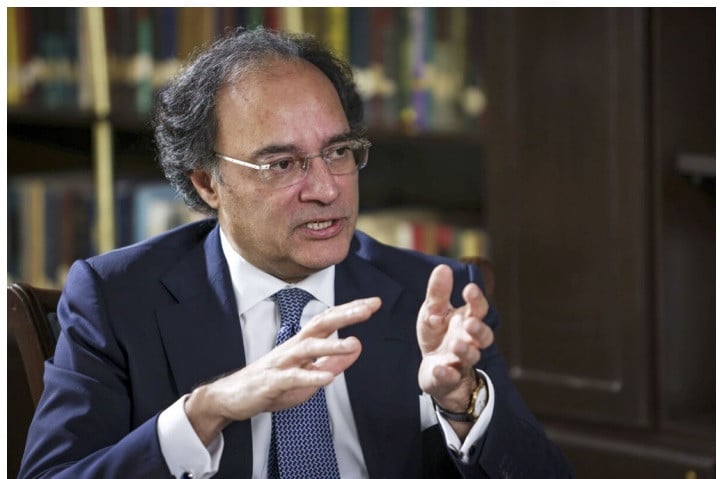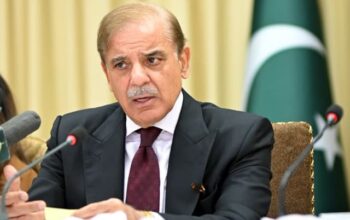By Staff Reporter
KARACHI: Finance Minister Muhammad Aurangzeb on Tuesday expressed optimism about the International Monetary Fund’s (IMF) approval of a $7 billion, 37-month program, ahead of the IMF board meeting on Wednesday.
“We have the IMF board meeting tomorrow in the US,” Finance Minister Muhammad Aurangzeb said in an online banking seminar. “We are very hopeful that the board will approve the 37-month, $7 billion programme under which we are very committed to do structural reforms.”
Pakistan has reached a staff-level agreement with the IMF in July. The IMF confirmed its board will meet on September 25 to discuss Pakistan’s Extended Fund Facility (EFF).
The decision came following speculation that the disbursement of funds was tied to delays in debt rollover confirmation from China, Saudi Arabia, and the UAE. The delay was also speculated to be related to the government’s failure to arrange for fresh funds to cover the external financing gap of $2 billion for the present fiscal year.
Pakistan’s last $3 billion IMF program helped avert a sovereign default in 2023 amid a sharp decline in foreign exchange reserves, currency depreciation and record inflation.
The latest IMF programme aims to cement stability and inclusive growth in Pakistan, which has undergone 22 IMF bailouts since 1958.
Aurangzeb thanked China for its support in securing the lastest IMF bailout programme. “I want to thank the government of China in terms of the support that we’ve had on the Fund programme as a long-standing partner of the country,” the minister said.
“Now we need to move forward and that means we need to stay with the reform agenda — whether it’s on the taxation side, whether on the energy side, whether it’s on the state-owned enterprises and privatisation side.”
Aurangzeb said the country would stay its current economic course, pointing out that macroeconomic stability was the “basic foundation” of any economy.
“You have to grow and build from a stable base. We have reached that level now. Now, we can say that we have a good foundation on which we can build from here,” the minister added.
“Now we need to move forward and stay with the reform agenda whether it’s on the taxation or energy side [or] on the state-owned enterprises or privatization side.”
The finance minister noted the decrease in the Karachi Interbank Offered Rate (KIBOR) positively affects the industry. “We are in no desperation to borrow money; if we borrow domestically, it will be on our terms,” Aurangzeb said, citing examples of the government’s recent rejections of T-Bills and Pakistan Investment Bonds (PIBs) bids.
“Now, this is all on the back of the Fund program, and we successfully concluded the nine-month Stand-By Arrangement (SBA).”
Copyright © 2021 Independent Pakistan | All rights reserved




